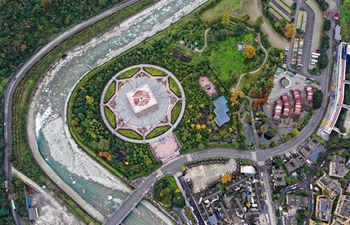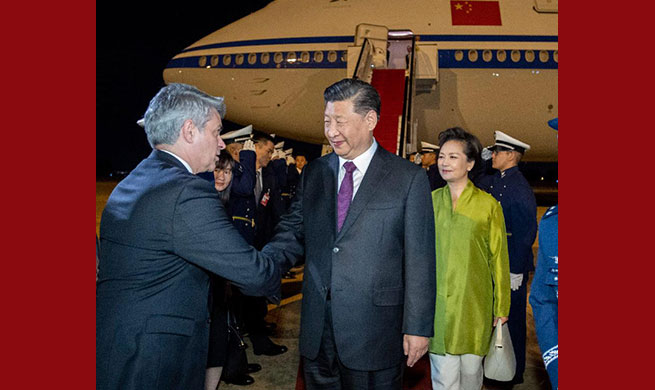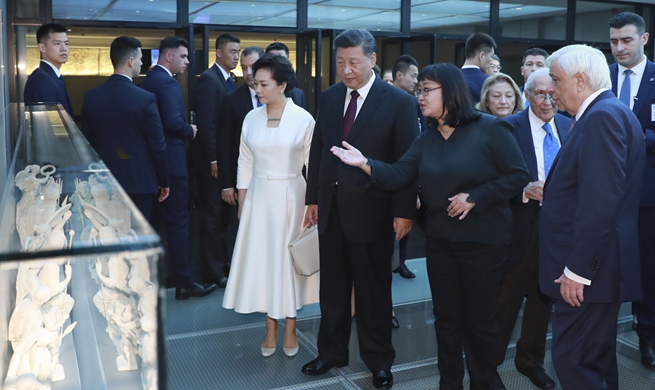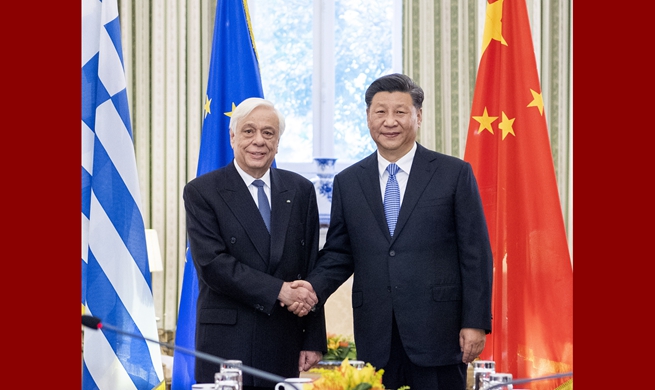SUVA, Nov. 13 (Xinhua) -- The Fiji police force collected 68 million Fijian dollars (about 31 million U.S. dollars) from marijuana farmers alone during drug raids in 2018, according to the officer in charge of Drug Intelligence Unit at the Fiji Police Force Anare Masitabua.
He made the comments on Wednesday while presenting at the National Dialogue titled Substance Abuse -- Let's Talk About It! Finding a Fijian Solution, at the University of the South Pacific in Fiji's capital Suva.
Leadership Fiji organised the national dialogue with the support of the Ministry of Defence and National Security.
Masitabua said challenges they faced included people's ignorance by not taking ownership of their communities, porous maritime border control, lack of information sharing between local agencies and external agencies, increase in synthetic drugs, increase in demand and new markets, new drug trafficking routes and the use of online communication systems and lack of expertise in drug counselling and rehabilitation.
He said two deaths have been recorded in Fiji from the setting up of methamphetamine labs, adding that police arrested 148 people in 2009 because of methamphetamine while last year the arrests rose to 1,440.
Fiji is now being used as the main highway for drug traffickers from South America and South Asia, he said, and the new drugs are following Fiji's 142-year-old platform created by marijuana.
He said most of the new drugs are not catalogued in their National Substance data system which makes their work challenging.
Fiji Corrections Service Senior Psychologist Elenani Vuru said according to data, drugs is one of the major contributing factors of crimes these days and that they tried their best to prevent drugs from entering the Corrections Institutions.
Vuru said they have built infrastructure to cater for the prisoners and looked at them positively irrespective of the crime they committed.
She added that they had multidisciplinary teams including medical practitioners, nurses, psychologists, counsellors and a lot of non government organizations whose services were accessed by prisoners.













